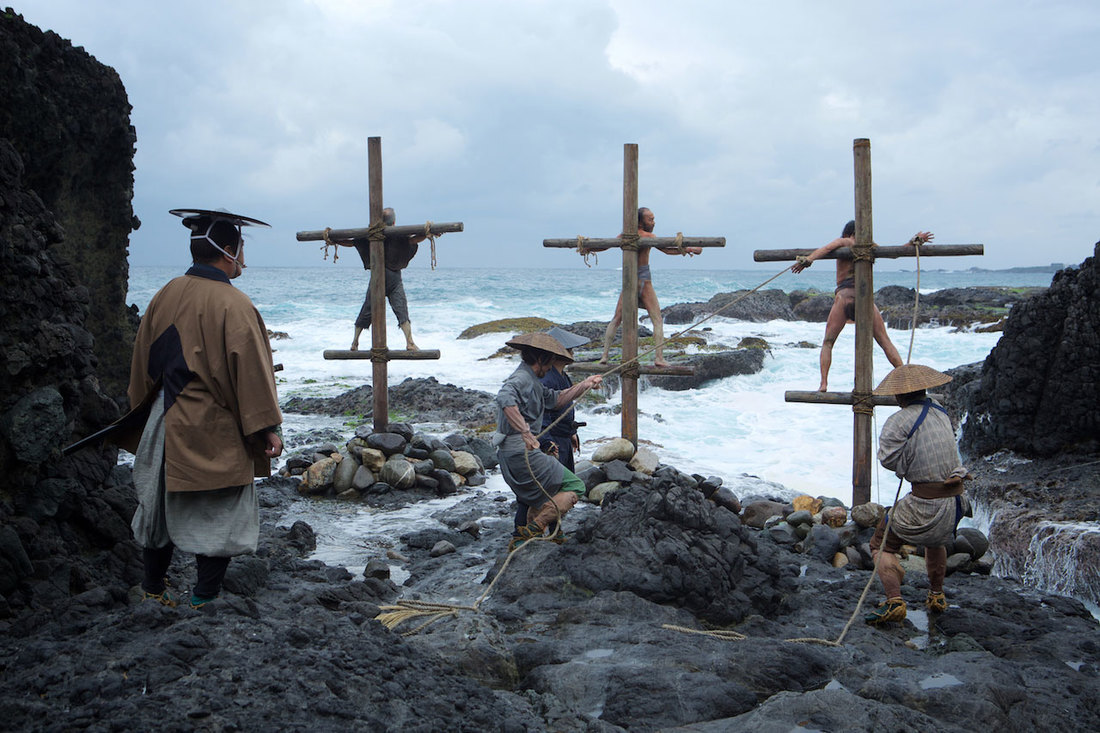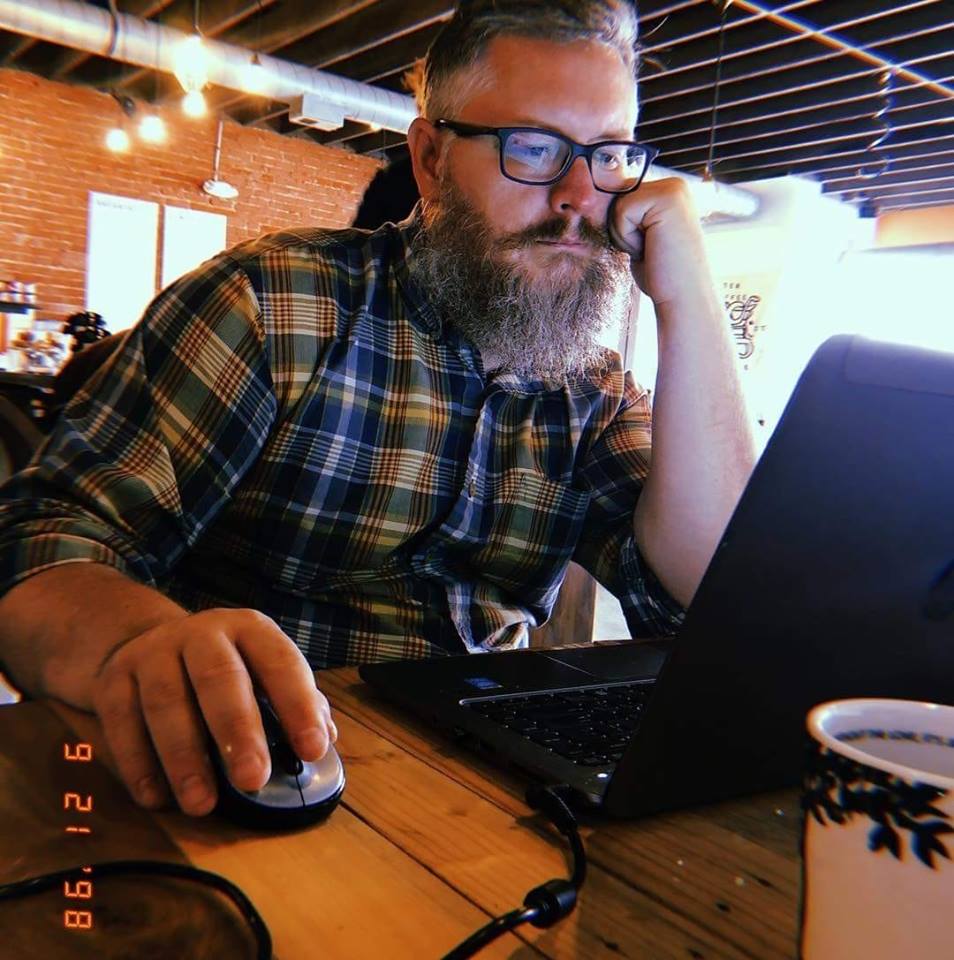|
This is kind of a long post. It's mostly from Craig Keener, a New Testament scholar. He is one of the humblest scholars I have ever engaged in conversation, going back to my time in Africa. Some side notes: Keener is originally from Massillon, Ohio; ordained in an African American denomination; and married to a fellow PhD from Congo. This is their story. Here, in his commentary on 1 Corinthians 1:18-31, the NT reading for Sunday, he tells a bit of his path toward the Gospel. This story might be especially helpful for my students in Missional Church class that are wrestling with some of these same themes as they finish their senior year at MVNU. I thought you'd enjoy it, too. Some background--The apostle Paul wrote that the believers in the Cross would be scandalous ("stumbling block") and just plain foolish in the view of this world's onlookers (verse 23). The following passage is from 1-2 Corinthians, Brazos Theological Commentary, 2005, 32-33): “Paul offers an uncomfortable example for scholars and preachers alike, not by offering a cheap anti-intellectualism but by demanding that we evaluate our own intellectual milieu critically in light of the cross. Sometimes graduate students are too beholden to ‘scholarly consensus,’ but reading the major scholarly works (e.g. on Jesus scholarship) chronologically from the nineteenth to the present generally cures that tendency. Recognizing that scholarly consensus reversed itself on some major points every decade or two (although British scholarship, for example, seems less given to extremes than my North American setting) invites us to evaluate arguments for positions rather than simply parroting them. “I was an atheist before my conversion to Christianity, partly out of intellectual fashion and partly out of revulsion for the allegedly Christian culture I observed. I rejected the shallow, unexamined faith of much of Western Christendom [p33] because it seemed to me that even the Christians did not believe it. How could anyone genuinely believe they served their creator, yet fail to devote their entire life and property to their ‘lord’? But I also recognized that my finite intellect could not grasp a perfect deity, and in the end it was not Christendom but Christ that won me. After my conversion I discovered the difference between nominal and genuine commitment to Christ, and my conversion involved embracing the very shame against which I had once revolted: I was no longer intellectually fashionable. Once the cross had crucified my respectability, however, I was free to pursue unfettered what I believed to be truth." Keener concludes, “Some are of Aquinas; others of Cranmer; other of Luther; still others of Wesley, Calvin and so forth; but Christ must matter to Christians more than the teachers from whom we learned him, no matter how esteemed.”
0 Comments
A question from a student, emailed this morning:
"I have officially confirmed a spot on the trip and I am now beginning to be active in raising support. . . what I could possibly do to to be proactive and effectively find support . . . I was wondering if you could give me some ideas!" Here is part of my response: When asking for financial support for missions and ministry, do two things right at the start: Chunk it and seek direct support. Chunk it. Breakdown the cost in two ways by asking these questions. What’s the money for? Specifically, it’s for airfare, housing, food, materials to help support (this will help communicate what you need). Generally, it’s for a greater purpose: creating a ministry center in a village/city in central America, training local leaders in Africa. Basically, it's leaving something behind after you leave. How much is needed? If it’s $2000, break it down into smaller chunks. Twenty sets of $100, 40 sets of $50. Direct support. Ask directly for help. Do not send a general could-be-written-to-anybody letter. Be ready to meet face-to-face, by skype, Facebook Live, whatever. Just look the potential donor in the eyes. You're asking another person to help other people. Treat them like a human being not an ATM. Identify 20 or 40 people (twenty or forty couples, families, individuals) that you know personally. When you meet face-to-face to talk about your trip, talk about what you need specifically and generally (see above). Tell them why you are going (the general purpose outlined above), this is the real reason for the trip. It's the basis of the burden, the divine design of why the trip and your presence is necessary. Respond as well to any questions about what the funds could be used for specifically. They are supporting you, so let them know what you need. They are helping you respond to God's calling, so what will it take you to be obedient? Ask for an increment of the total cost--$100 or $50 or more--whatever the Spirit leads you to ask them for. This is where your faith kicks in. Be ready at that time to offer the ways for them to give. Have a reminder or a receipt of some kind: a card that has the amount they have given or will give. Check boxes with the increments or a blank to fill in for whatever amount they can give. On this card, put the address to send a check (should not be your address but the address of the organization sponsoring the trip), and add weblink to send payment electronically. Give a time frame when the money has to be received. If they give cash, this can be a receipt with the title of the organization/church, trip destination, amount, and date given). Ask for their contact information. Send a followup letter just before you leave. This can be typed with a handwritten personal note for each donor, thanking them for their faithfulness and willingness to participate in this trip by helping you go. And, send them an update during the trip if longer than two weeks as well as a letter reporting the good news of what happened on the trip after you return. Ask to invite generosity that is already present, because the Spirit that sends will also provide. "Now he who supplies seed to the sower and bread for food will also supply and increase your store of seed and will enlarge the harvest of your righteousness." (2 Corinthians 9:10 NIV)
Endo accomplishes this through his depiction of the suffering of Christian villagers, their vicious urban persecutors, and the Portuguese priests sent into the islands to witness these events. Several aspects of Endo’s depiction rings true to missionary life as I experienced it and through shared life with other missionaries in my circle of colleagues. I have stories, and so did they. Endo captures glimpses of each one of our stories, though ours may not have been as dramatic.
Ambiguity of Being Sent
I wonder if missionaries realize the struggle their superiors go through in order to make it possible for them to go. I sometimes think back to our experience leading up to and during our initial arrival in the Cote d’Ivoire. So many things about that situation parallel the novel, including the ambivalence decision-makers, the over-enthusiastic motivations of missionaries upon entry and short-lived return to a volatile situation, and the unpredictability of the destination country.
Unlocking Gates of Cross-cultural Friendship
The second aspect that rings true, to some extent, is the dependence of the missionaries upon a cultural gatekeeper. In the novel, the priests find a Japanese man named Kichijira, drunken and dressed in tattered rags, to lead them to their destination on a Japanese island. The initial impressions of the priest Sebastian, that Kichijiro is “crafty.”[2], acknowledge that missionaries must sometimes depend on “untrustworthy” companions.[3] The suspicions of the priest are initially validated by the man’s deplorable work ethic and attitude. Later the man does lead them to Christians in Japan, but eventually betrays Sebastian into the hands of Japanese authorities.
The need for a cultural gatekeeper is realistically portrayed in the novel. Missionaries in many cases are utterly dependent upon the gatekeeper. The difference lies in the extremity of the untrustworthy nature of the novel’s gatekeeper. Most local connections are truly sympathetic to missionaries, especially those working directly with them over a period of time. There are cases and particular situations where the gatekeeper betrays the missionary’s trust or intention in the host country. I know of particular situations where I served as well as in other places in the world in which a local leader “turned” against the missionary. Many times differing personalities, misunderstood priorities, and lack of cross-cultural preparedness are at the root of the conflict between missionary and their destination. In my experience, the cultural gatekeepers were not only trustworthy but close friends, and have remained so long after our departure. There were particular cases in which I needed to entrust my safety to someone, such as a taxi driver or bureaucrat, that I knew was not particularly trustworthy. Struggle Inside the Missionary
A third aspect of the story that seemed true-to-life was the internal struggle of faith within the missionary. Again, the novel describes the extreme version of this spiritual wrestling match. The first time this becomes apparent is after the missionary's arrival in Macao. The priest observes the crowded Chinese city and is overwhelmed by the inexplicable poverty.[4] The uncertainty toward why things are the way they are continues as the missionaries arrive in the Japanese islands, hide in the mountains, and witness the persecution and martyrdom of Japanese believers. The missionaries continue to question God, even to the point of letting go of their faith by trampling on the face of Christ.
In the case of many missionaries, it is a process of working through the inability to alleviate the suffering of others, overcome the obstacles found in the host culture, and dealing with the adaptation of one’s home culture into that of the host. It may not lead to stomping on a depiction of the Savior's face, but long and deep rifts occur emotionally and intellectually that may take a lifetime or longer to heal.
The internal struggle of Endo’s main character Sebastian ends with the “silence” of God in the face of human suffering. The priest no longer perceives God’s presence or tangible response to the hellish existence suffered by so many. Missionaries need to come to the place where their perceptions are not always the measure of God’s presence. I think that is where faith begins: when God is no longer perceived in the limitations of my own expectations. Sebastian fails the test or simply gives up on the test. His experience becomes a warning to other missionaries. Martyrdom as a Sign to the Journey's End
One last aspect of the novel is quite intriguing. It is the contrast between the witness of the Japanese martyrs as observed by the Jesuit missionaries. Martyrdom at its root is as a witness, a sign of the end of the missionary's journey. Christ bids his followers to “take up their crosses and follow him” as a mark of discipleship. No missionaries in the novel actually lose their physical lives on the island; Garrpe drowns in the water, chasing the boat carrying the Japanese martyrs
The only characters in the novel to lose their lives as martyrs, to become witnesses for the gospel, are the Japanese villagers that became believers in Jesus. Their blood nourishes the nascent faith of their land, particularly the beheaded one-eyed prisoner.[6] Japanese believers pay the price for the efficacy of Christian faith in their midst.
Here a subtext is uncovered. Faith in Christ cannot subsist on imported versions offered only by outside missionaries. It can begin this way, but it cannot continue without localized belief leading to lives given to and for Christ, even at the expense of the missionary's own faith. The basis for the authentic Christian ministry is always sacramental sign: broken and poured out. And, another thing. Inoue, the brutal magistrate, is a former student of missionaries. His faith lagged and was lost because there was not a witness of a belief enact, lived out. made tangible as a human sacrament of divine grace.[7] Just a sobering reminder that the Word verbalized also needs to be visualized before it is received fully. |
Bio
teacher, writer, Archives
August 2022
Categories
All
|




 RSS Feed
RSS Feed